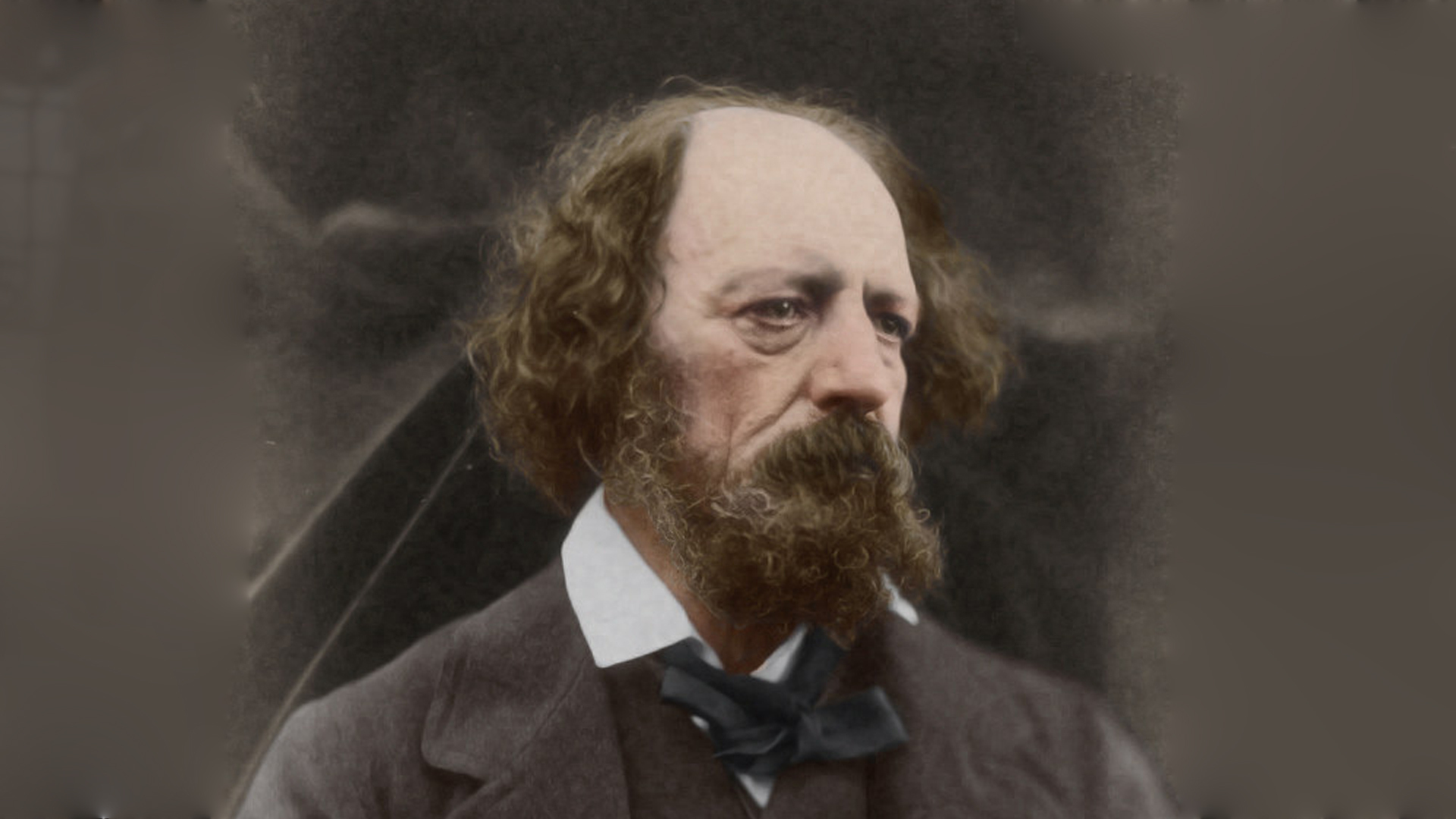A Farewell Poem by Alfred Lord Tennyson
A Farewell
Flow down, cold rivulet, to the sea,
Thy tribute wave deliver:
No more by thee my steps shall be,
For ever and for ever.
Flow, softly flow, by lawn and lea,
A rivulet then a river:
Nowhere by thee my steps shall be
For ever and for ever.
But here will sigh thine alder tree
And here thine aspen shiver;
And here by thee will hum the bee,
For ever and for ever.
A thousand suns will stream on thee,
A thousand moons will quiver;
But not by thee my steps shall be,
For ever and for ever.
this anaphora: ''by thee my steps shall be, For ever and for ever.'' is wonderful and is also a really secret of mine now when I must recognize that I am near my special love, poetry of Alfred Lord Tennyson.........
Its a beautiful poem. It expreeses the poets sad mood. It looks very sad type of poem. It says that the rivulet goes on moving till it becomes a river and then it merges in the sea. I sense a feeling the like that rivulet, we, too have a short life and we grow up and at last we too go away frome this earth to the God. It says that as the river flows it gives evrybody happiness. We learn that we too should be like the river.
Definitely, Tennyson shows a jealousy towards nature and its ability to live on as humans cannot. Similarly, the 'yew tree' in 'In Memoriam', sprays its pollen out in a 'smoke' in an atmosphere of death.
It's a beautifully written poem, in my opinion. However, as I read it, I sensed a tense mood. It wasn't positive, it was more negative... and I believe Tennyson's use of words most likely contributed to this ('cold', 'sigh', 'shiver', 'quiver'.. etc.) , and even the title itself, 'A Farewell', expresses a negative, depressing tone. Overall, I think the message of the poem refers to the endurance of nature versus the life of man, how nature lives on and humans meet their inevitable fates, and the speaker of the poem says their final goodbye to life.
But not by thee my steps shall be, For ever and for ever...such wonderful poetry! !
A thousand suns will stream on thee, A thousand moons will quiver; But not by thee my steps shall be, For ever and for ever......marvelous conceptualization. A beautiful poem is well executed. Five stars.
A marvellous poem flowing so smoothly. Let the river be blessed by thousand suns and moons.
In my PG classes when teaching us your inmemorium, we felt the the power of your expression emanating deep pain and anguish but this one is different...
This poem has not been translated into any other language yet.
I would like to translate this poem
'A Farewell' by Alfred Lord Tennyson is a simple, interesting, yet beautiful poem; written in four stanzas of 4 quatrains, rhyming abab throughout all four quatrains of the poem. The appeal begins immediately with the command Flow down, cold rivulet, to the sea, extended into purpose, Thy tribute wave deliver: which creates an immediate contrast in juxtaposition. The narrator exclaims No more by thee my steps shall be, / For ever and for ever. Endings changes are definitely implied, the cold rivulet, which is a streamlet, shall become a small brook, stream; river and eventually merge into the sea. The rivulet will Flow, softly flow, by lawn and lea, / A rivulet then a river: and for an unspecified reason, in the future the narrator, will never walk again in small steps near the rivulet, admiring the beauty of this gently passing water. An impending ending is definite, No more implies many past steps about to be terminated, Nowhere intensifies an implied loss. The narrator shall never again enjoy this deep personal love and joy appreciating this or any other rivulet. No more by thee my steps shall be, is a declaration of love, the thee accompanied by his adoring steps will cease For ever and for ever repeated ending every quatrain for emphasis. Is Tennyson stating the season is winter? Flow down, cold rivulet, could be a metaphor for death, the rivulet is commanded to flow down, but without fear panic or alarm. Flow, softly flow, by lawn and lea, mixes lawn and lea, grassland or pasture with a river and time. The lea is temporarily land for hay or grazing, the human interaction with nature is continuous but only individual lifetimes spanned. The expansion of life as passing seasons is extended in the third quatrain. The lines beginning But here, And here, And here imply at least three separate seasons to be. In fall will sigh thine alder tree, in winter thine aspen shiver; and a future spring summer or both is introduced with And here by thee will hum the bee. These seasonal cycles will shift alternate For ever and for ever. The poem as a metaphor for life, is reinforced with the strength beauty of A thousand suns will stream on thee, / A thousand moons will quiver; . It could be read as sad that the narrator will never again enjoy this beauty as But not by thee my steps shall be, / For ever and for ever definitely confirms. Many farewells are sad, this farewell being the title of the poem is definitely important, the last farewell as the lines within the poem confirm. Yet for me Tennyson implies, this is right, this is the normal cycle of life, which we are born into and should delight in. An overall impression is an immense wealth of joy and happiness, experienced and appreciated through intimate interaction with nature, narrated within this poem. Tennyson has a gift, a mastery, for implying so much through a few simple well chosen words, in beautiful succinct expression.